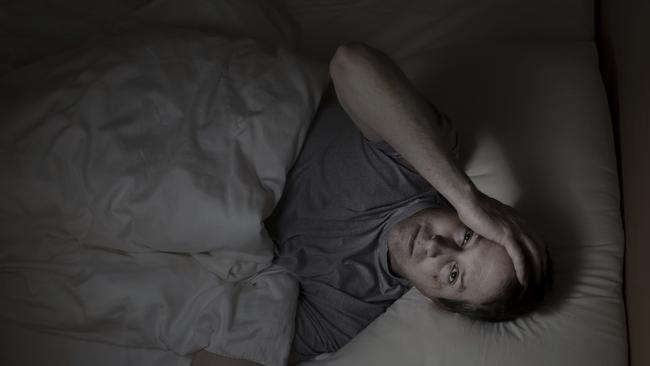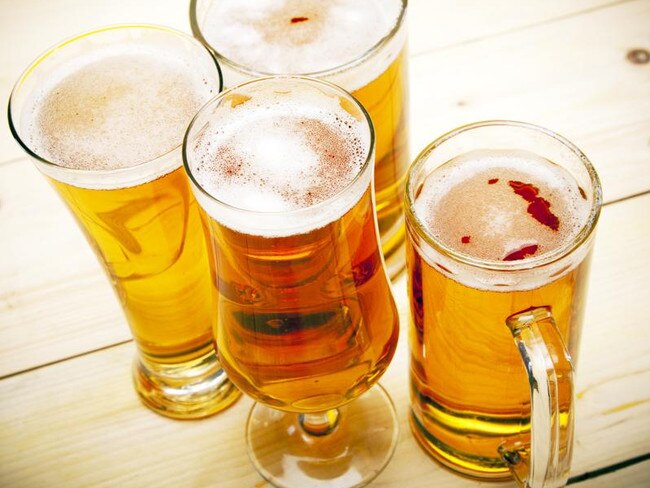Sleep-deprived binge drinkers may be damaging their brains
BINGE drinking may be so bad for sleep, researchers fear young people may be changing their brains and ruining their ability to sleep properly even on nights they stay sober.
VIC News
Don't miss out on the headlines from VIC News. Followed categories will be added to My News.
BINGE drinkers may be damaging their brains and ruining their ability to sleep properly even on nights they stay sober.
New research suggests the impact of heavy drinking on young people could be just as harmful for their sleep as it is for long-term alcoholics’.
The University of Melbourne study found those downing four to six standard drinks in a session lost an average of 20 minutes’ slumber that night.
RELATED: NEW UNDERAGE DRINKING LAWS INTRODUCED
TEENS’ BOOZE INTAKE PREDICTS TROUBLE IN ADULTHOOD
GIVING TEENS ALCOHOL MAY NOT PREVENT PROBLEMS
But they also continued to miss out on restorative deep sleep on nights they had not been not drinking.
The brain continues to develop into a person’s early twenties, and lead researcher Caitlyn Gourlay said binge drinking among 18- to 21-year-olds may be causing changes to their brains.
“Being 18 years old, there is a huge increase in the amount of alcohol we drink at this time in our lives, but it is also at this time our brain might be the most vulnerable to alcohol-related sleep changes,” she said.

“We know that in long-term alcohol dependency, very heavy alcohol use does result in changes to the brain, which produces less restorative sleep and sleep disorders.
“It is possible that in this developing age group there could be some exaggerated effects.
“They could be more sensitive to the toxic effects of alcohol.”
The University of Melbourne study tracked 47 adults aged 18 to 21 who had either light or heavy drinking tendencies, testing their sleep after drinking or after a sober night.
The research, to be presented at the Australasian Sleep Association’s annual conference in Brisbane this week, found consuming four to six standard drinks interrupted sleep and resulted in an average of 20 minutes less slumber.
It also found the heavy drinkers had suffered less restorative sleep when not drinking, while also dreaming earlier in their sleep cycle than a typical sleeper.

While the impacts are similar to those found in older, long-term alcohol abusers, it may also be a case of chicken and the egg — where young people with a pre-existing sleep disorder may be more likely to drink.
Ms Gourlay hopes further work examining the physiological impacts on the brain of binge drinking can clarify the links.
“When you consume a really high amount of alcohol it does reduce the number of brain cells you have and it reduces the connectivity between the neurons so they are not as good at communication to each other,” Ms Gourlay said.
“As there are fewer neurons and poorer connection between the neurons the brain is less able to produce that really deep stage of sleep, restorative sleep.
“We know sleep is really, really important for healthy development and when we have bad sleep we don’t feel good the next day.”


